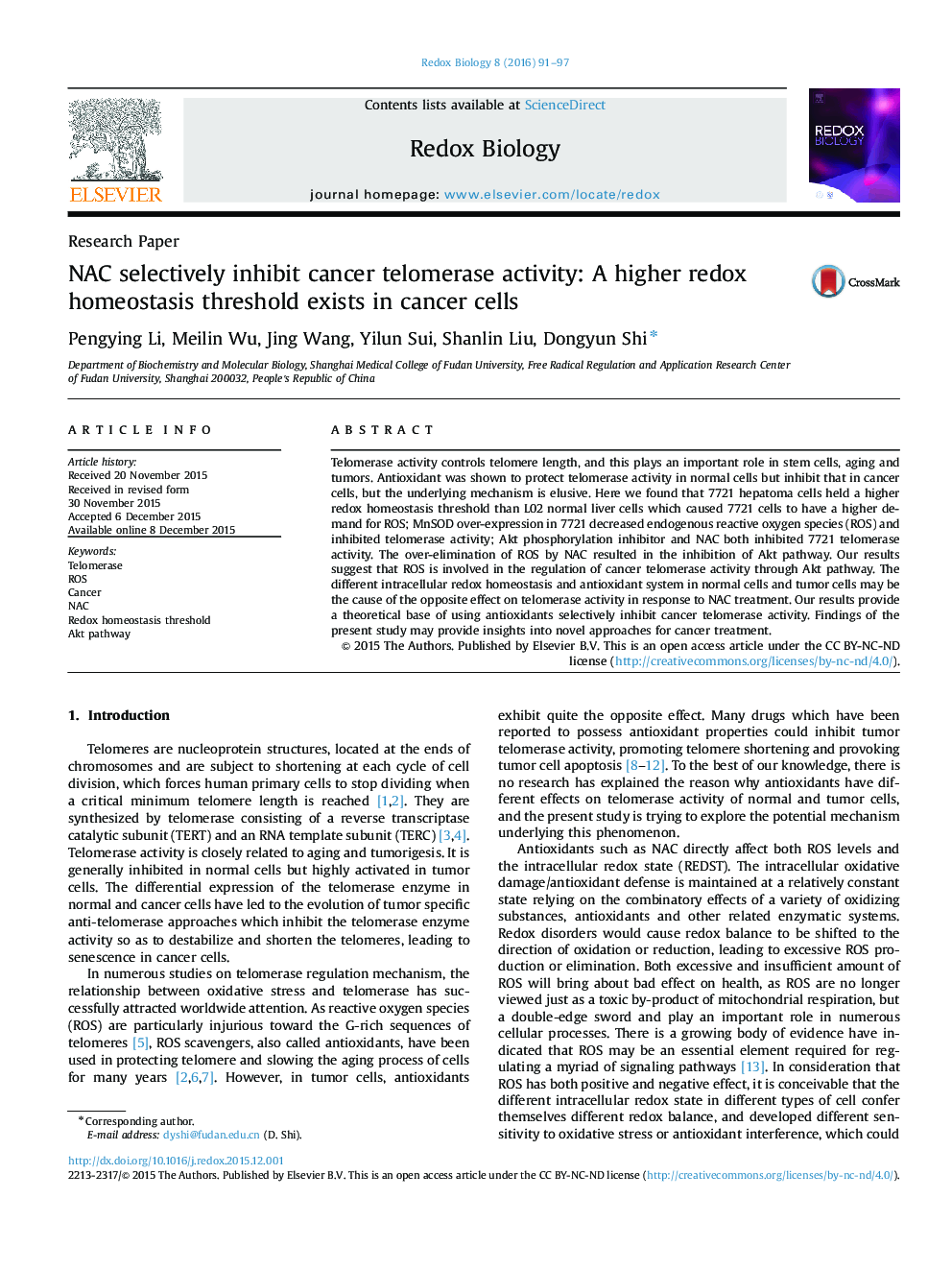| Article ID | Journal | Published Year | Pages | File Type |
|---|---|---|---|---|
| 1922854 | Redox Biology | 2016 | 7 Pages |
•This study explains why antioxidants selectively inhibit cancer telomerase activity.•Cancer cells have higher redox homeostasis threshold than normal cells.•ROS is involved in the regulation of cancer telomerase activity through Akt pathway.
Telomerase activity controls telomere length, and this plays an important role in stem cells, aging and tumors. Antioxidant was shown to protect telomerase activity in normal cells but inhibit that in cancer cells, but the underlying mechanism is elusive. Here we found that 7721 hepatoma cells held a higher redox homeostasis threshold than L02 normal liver cells which caused 7721 cells to have a higher demand for ROS; MnSOD over-expression in 7721 decreased endogenous reactive oxygen species (ROS) and inhibited telomerase activity; Akt phosphorylation inhibitor and NAC both inhibited 7721 telomerase activity. The over-elimination of ROS by NAC resulted in the inhibition of Akt pathway. Our results suggest that ROS is involved in the regulation of cancer telomerase activity through Akt pathway. The different intracellular redox homeostasis and antioxidant system in normal cells and tumor cells may be the cause of the opposite effect on telomerase activity in response to NAC treatment. Our results provide a theoretical base of using antioxidants selectively inhibit cancer telomerase activity. Findings of the present study may provide insights into novel approaches for cancer treatment.
Graphical abstractFigure optionsDownload full-size imageDownload as PowerPoint slide
